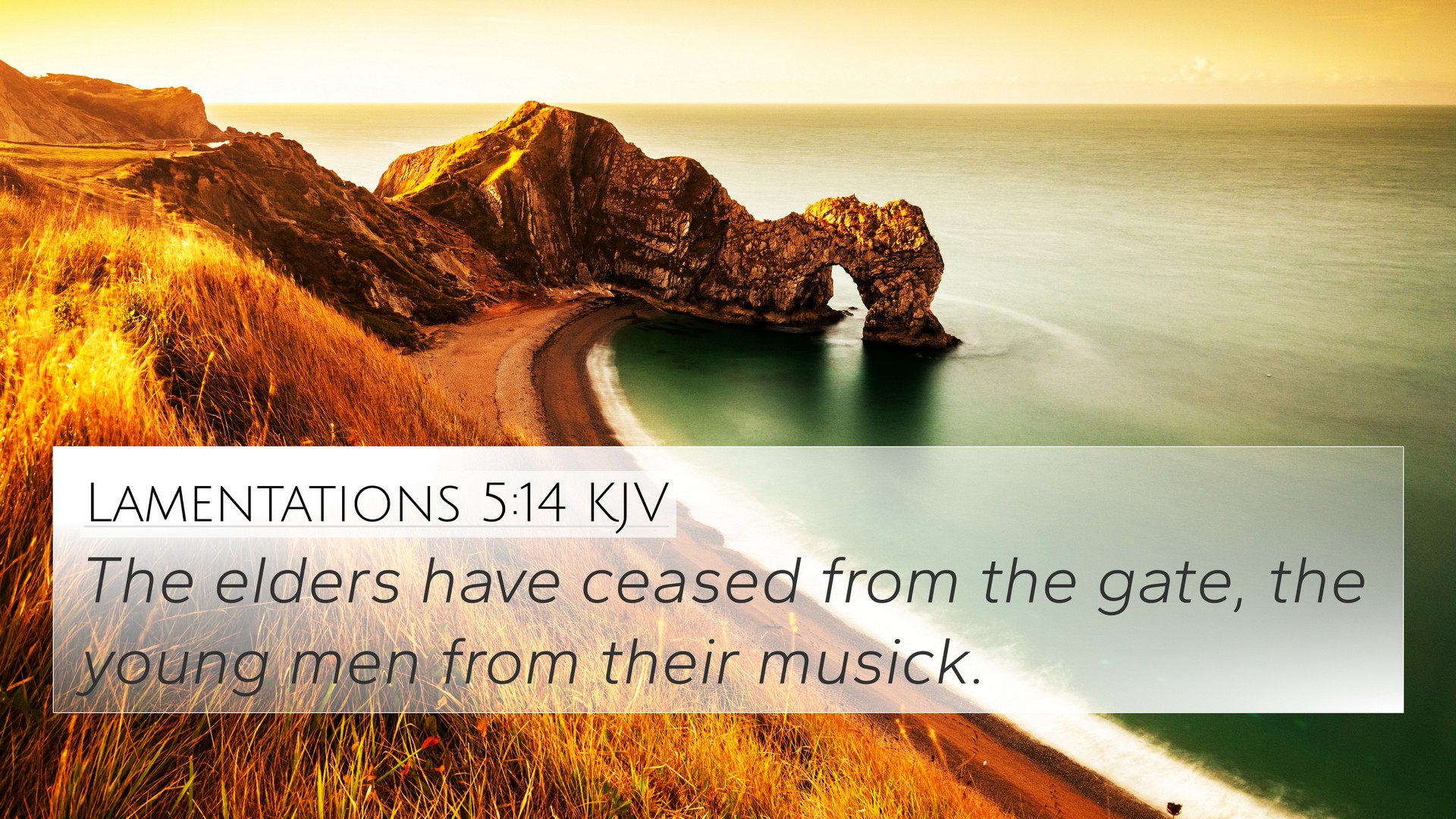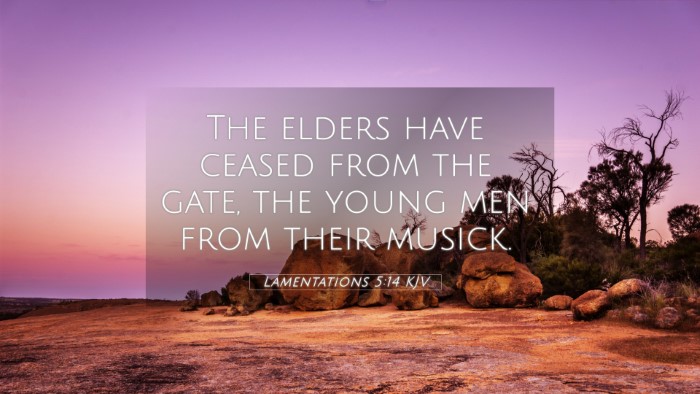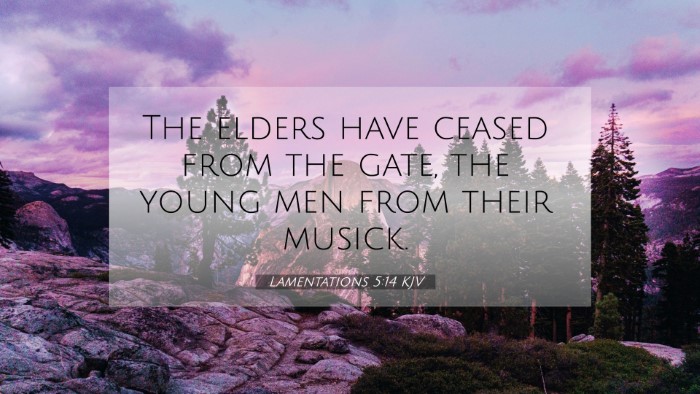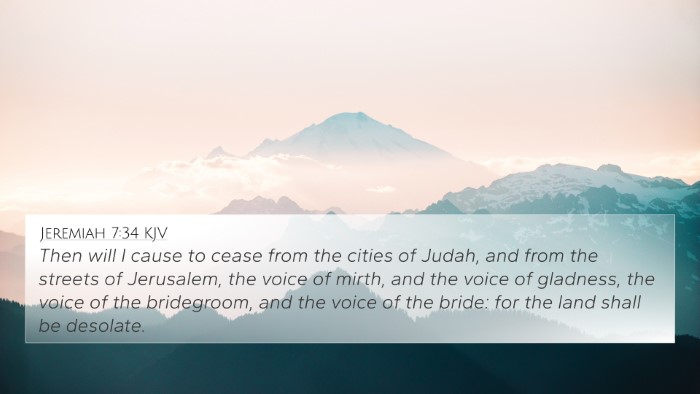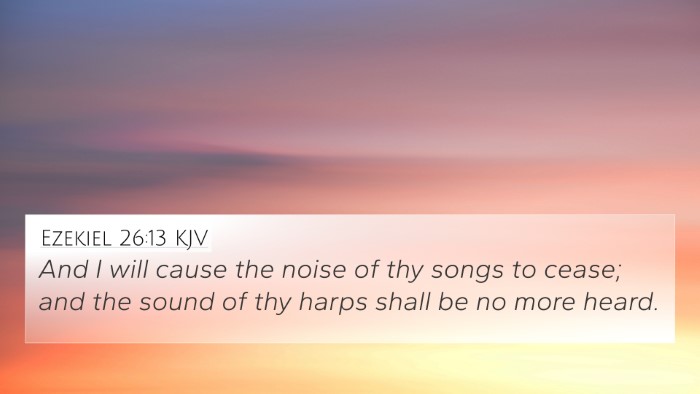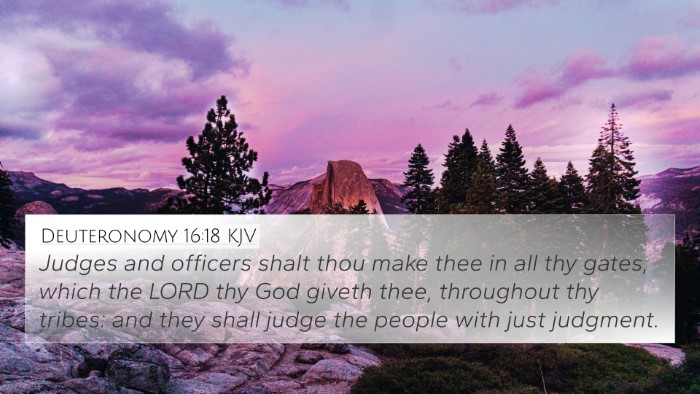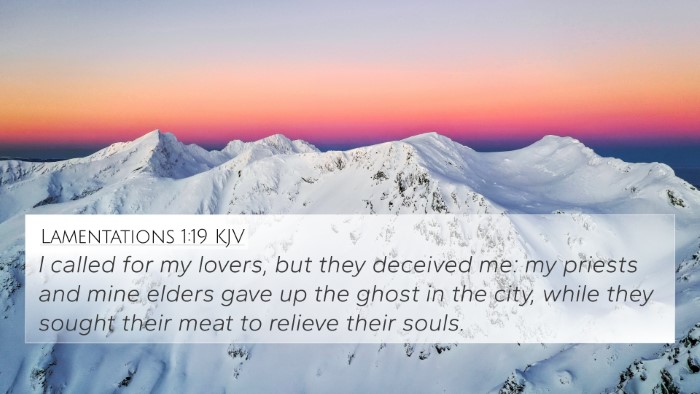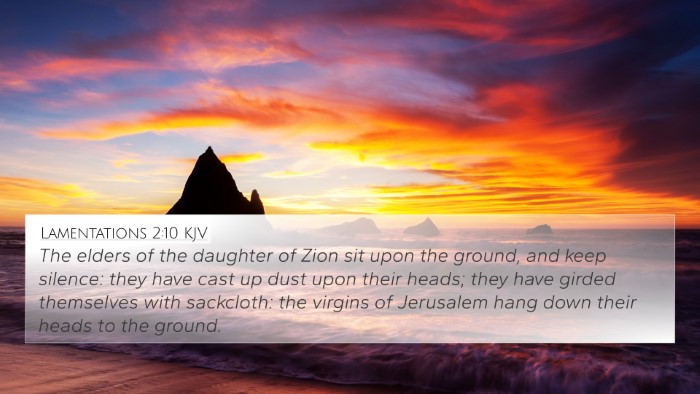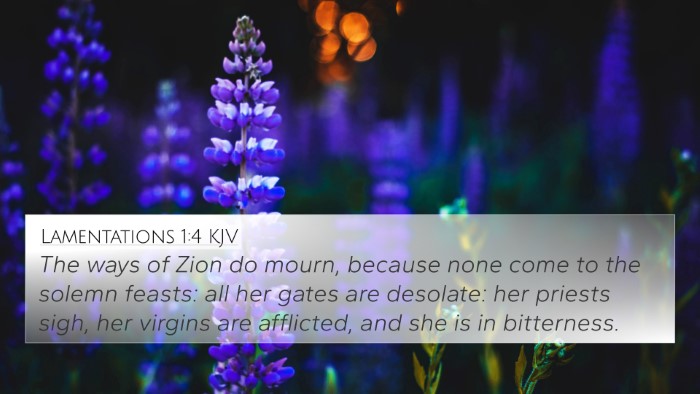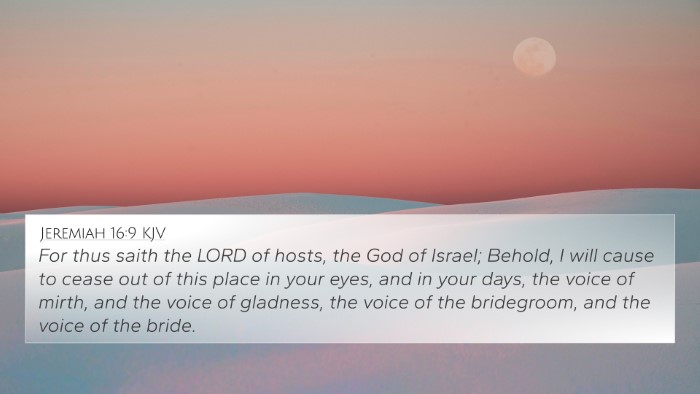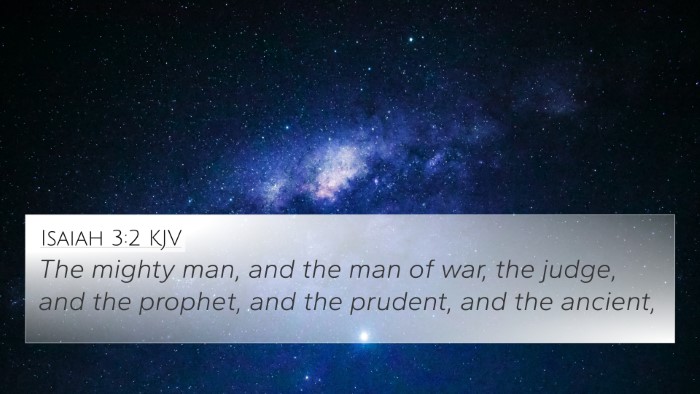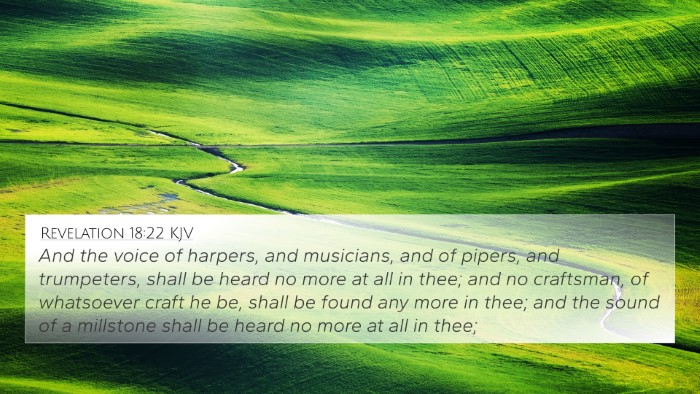Lamentations 5:14 - Summary and Biblical Commentary Insights
Verse Context: Lamentations 5:14 states, "The elders have ceased from the gate, the young men from their music." In this poignant reflection, the fallen state of Jerusalem is illustrated through the absence of its leaders and the cessation of joy and praise.
Meaning and Insights
This verse captures the deep sorrow of a community experiencing desolation, marking the end of both communal governance and celebration. Drawing from various public domain commentaries, we find enriched perspectives that bring depth to the understanding of this text.
-
Matthew Henry:
Henry emphasizes the loss experienced by the people of Jerusalem after the siege. The elders, representing wisdom and authority, have abandoned their roles, while the absence of music symbolizes a loss of joy and celebration within the society. Henry connects this absence of leadership to the divine judgement faced by the city.
-
Albert Barnes:
Barnes interprets this passage as indicative of the total devastation that has befallen Jerusalem. He suggests that the cessation of music and the silence of the elders reflect a hopeless situation, where joy is lost, and the cultural practices that bind the community are no longer observed. He further compares this moment to other scriptural instances of desolation and grieving.
-
Adam Clarke:
Clarke highlights the dual significance of the elders and music. The elders symbolize governance, which has failed, while music represents the expression of joy and spiritual connection with God. Clarke suggests that the inability to worship and lead indicates a time of severe turmoil and separation from divine presence.
Cross-References and Thematic Connections
To better understand the themes present in Lamentations 5:14, it is beneficial to explore related Bible verses, facilitating a deeper exploration of mourning, loss of leadership, and the absence of joy:
- Jeremiah 14:2: "Judah mourns, and her gates languish; they mourn for the land, and the cry of Jerusalem has gone up." This verse parallels the mourning present in Lamentations.
- Psalms 137:1: "By the rivers of Babylon, there we sat down, yea, we wept, when we remembered Zion." This capture of sorrow aligns with the desolation in Lamentations.
- Isaiah 24:8: "The mirth of the tambourines ceases, the noise of those who celebrate ends; the joy of the harp ceases." Here, the silence connects directly to the loss of joy depicted in Lamentations 5:14.
- Micah 1:10: "Tell it not in Gath, weep not at all; in Beth-le-aphrah roll yourself in the dust." This shows the cultural lamentation akin to that in Lamentations.
- Lamentations 2:19: "Arise, cry out in the night, at the beginning of the watches; pour out your heart like water before the presence of the Lord." This call to mourning reflects the emotional weight of Lamentations 5:14.
- Jeremiah 9:17-18: "Thus says the Lord of hosts: Consider and call for the mourning women to come; send for the skilled women to come..." This verse calls for lamentation, directly tying to the themes in Lamentations.
- Proverbs 29:2: "When the righteous are in authority, the people rejoice; but when the wicked beareth rule, the people mourn." This reflects the consequences of failed leadership as seen in Lamentations.
Thematic Analysis and Connections
The loss of the elders and the cessation of music serve as a profound reminder of the social and spiritual fabric of a community. The intertwining of governance and worship during crises exhibits a pivotal theme across scripture:
- Social Leadership: The absence of elders in Lamentations points to a breakdown of social structure, paralleling teachings in Proverbs regarding righteous leadership.
- Joy and Worship: The link between music and joy in worship is affirmed in various psalms, contrasting with the desolation in Lamentations.
- Divine Judgment: Understanding this verse within the broader narrative of God's judgment throughout the Bible builds a comprehensive backdrop for its interpretation.
- Human Emotional Responses: This scripture resonates with many human experiences of grief and loss, making it universally relatable and thematically significant.
Conclusion
Lamentations 5:14 paints a somber picture of loss, both in leadership and in communal joy. By cross-referencing this verse with other scripture, believers gain a fuller understanding of the themes of mourning, governance, and divine judgment. Utilizing tools for Bible cross-referencing enhances the study of these themes, providing a rich context for searching the scriptures.
This organized exploration of Lamentations 5:14 not only deepens understanding but also highlights the importance of inter-Biblical dialogue through cross-referencing related verses.
